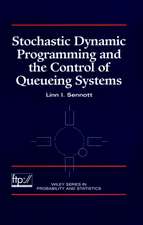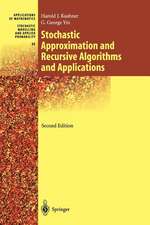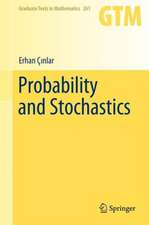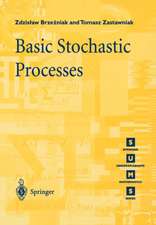Poisson Point Processes and Their Application to Markov Processes: SpringerBriefs in Probability and Mathematical Statistics
Autor Kiyosi Itô Cuvânt înainte de Shinzo Watanabe, Ichiro Shigekawaen Limba Engleză Paperback – feb 2016
Din seria SpringerBriefs in Probability and Mathematical Statistics
-
 Preț: 348.79 lei
Preț: 348.79 lei -
 Preț: 480.07 lei
Preț: 480.07 lei -
 Preț: 380.25 lei
Preț: 380.25 lei -
 Preț: 472.65 lei
Preț: 472.65 lei -
 Preț: 389.70 lei
Preț: 389.70 lei -
 Preț: 445.88 lei
Preț: 445.88 lei -
 Preț: 378.92 lei
Preț: 378.92 lei -
 Preț: 176.15 lei
Preț: 176.15 lei - 15%
 Preț: 472.36 lei
Preț: 472.36 lei -
 Preț: 479.67 lei
Preț: 479.67 lei -
 Preț: 380.29 lei
Preț: 380.29 lei -
 Preț: 377.73 lei
Preț: 377.73 lei -
 Preț: 377.35 lei
Preț: 377.35 lei
Preț: 374.30 lei
Nou
Puncte Express: 561
Preț estimativ în valută:
71.62€ • 76.59$ • 59.72£
71.62€ • 76.59$ • 59.72£
Carte tipărită la comandă
Livrare economică 18 aprilie-02 mai
Preluare comenzi: 021 569.72.76
Specificații
ISBN-13: 9789811002717
ISBN-10: 9811002711
Pagini: 43
Ilustrații: XI, 43 p. 3 illus.
Dimensiuni: 155 x 235 x 3 mm
Greutate: 0.09 kg
Ediția:1st ed. 2015
Editura: Springer Nature Singapore
Colecția Springer
Seria SpringerBriefs in Probability and Mathematical Statistics
Locul publicării:Singapore, Singapore
ISBN-10: 9811002711
Pagini: 43
Ilustrații: XI, 43 p. 3 illus.
Dimensiuni: 155 x 235 x 3 mm
Greutate: 0.09 kg
Ediția:1st ed. 2015
Editura: Springer Nature Singapore
Colecția Springer
Seria SpringerBriefs in Probability and Mathematical Statistics
Locul publicării:Singapore, Singapore
Public țintă
ResearchCuprins
1. Poisson point processes.- 2. Application to Markov Process.
Recenzii
“The main idea of this volume has had a profound influence on the boundary theory of Markov processes. This volume is beautifully written and it is a pleasure to read.” (Ren Ming Song, Mathematical Reviews, December, 2016)
Caracteristici
Gives a beautiful elementary treatment of general Poisson point processes in Chapter 1, especially recommended for beginners Shows how the notion of Poisson point processes with values in a function space of paths called excursions plays a key role in an extension problem of Markov processes in Chapter 2 Demonstrates how the general theory in Chapter 2 can answer completely the extension problem for the minimal diffusion on [0, 8) with an exit boundary 0 Includes supplementary material: sn.pub/extras












